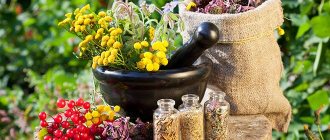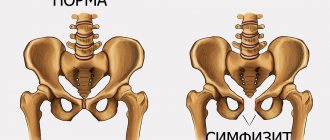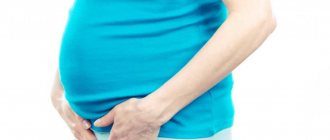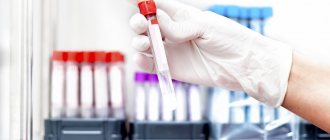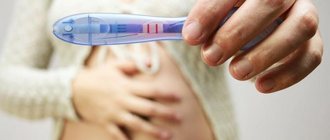What herbs to drink for conception when planning pregnancy?
One of the most accessible methods in preparing the body for bearing a child is taking herbal infusions.
Particularly good in this regard are: red brush, queen hogweed, elecampane, round-leaved wintergreen, golden mustache, and knotweed. The red brush is a good remedy for combating various inflammations of the female reproductive system; its use is more effective during the second phase of menstruation. The most powerful therapeutic effect can be achieved by adding other herbs to the decoctions, for example, rosea or lemongrass.
The uterus is a universal plant, since its decoction helps not only women, but also men. It can be included in the list of drugs used to treat infertility in men.
To solve problems in the reproductive system, you can prepare an effective composition:
- 1 teaspoon of red brush tincture;
- 0.5 liters of boiled water at room temperature.
Mix all ingredients in a container and use for douching twice a day - morning and evening. The duration of each procedure is at least 15 minutes. The full course is 7 days, then you need to take a week break and repeat the course if necessary.
Important!!! When planning pregnancy, any herbs should be taken with extreme caution and after consulting a doctor, since existing concomitant diseases can have the opposite effect.
Herbal medicine during pregnancy: pros and cons
In obstetrics, herbal medicine is of great importance, since many medications have a negative effect on the fetus. Because of this, conventional treatment is either completely contraindicated, or its timing is greatly reduced. Herbs can be taken in long courses, which is important for many chronic pathologies aggravated during pregnancy.
Another advantage of herbal medicine is the possibility of using herbs for prevention. If a woman knows that she is predisposed, for example, to edema, then to prevent it she can take small doses of medicinal plants. This will not work with tablets - they are prescribed strictly according to indications, when the pathology has already developed. You can also take restorative decoctions and mixtures during epidemics, which will reduce the risk of contracting the flu or ARVI.
Another area where herbs help, but tablets (except for tablets with extracts of the same herbs) do not, is the emotional sphere of a pregnant woman. Pregnancy itself is a powerful stress factor, and if unfavorable circumstances are superimposed on this, then it can be difficult for the expectant mother to cope with negative emotions on her own. Herbal teas can cope with this task, and most importantly, they can be taken in any trimester of pregnancy in long courses.
However, herbal medicine has its disadvantages. The main danger is taking a medicinal plant that is harmful to pregnancy.
Unfortunately, there is very little information on packs of herbal medicines. Many of them do not contain any instructions on the safety of taking the herb during or when planning pregnancy, so you have to look for information on the World Wide Web. Here you may encounter another problem – inconsistency of information.
This article was written using several sources of literature (textbooks for medical schools, recommendations of the Ministry of Health, medicinal reference books and scientific articles), but even in these sources there are indications of controversial data or insufficient knowledge. We tried to collect the most complete information in one article in order to protect pregnant women when treated with pharmaceutical plants.
Disadvantages also include the long development of the desired effect. Therefore, most often, in case of severe problems, herbal medicine is prescribed as an adjuvant. The following scheme is often used: simultaneous initiation of treatment with herbs and other medications, discontinuation of medications and maintenance of the therapeutic effect with the help of herbs alone.
Allowed and beneficial herbs
Despite the harmlessness of herbal preparations at first glance, not every herbal remedy can be used during pregnancy. Some may cause allergies, others may cause abortifacients.
Judging from a medical point of view, folk remedies have exactly the same effect as medications, they just contain fewer chemical components. Of course, the effectiveness of such methods is lower, but there is no fear of harming the baby in the womb.
Herbs for coughs during pregnancy
The effectiveness of herbs is dictated by the high content of vitamins A, B, C, flavonoids and microelements in their composition. In the right combination, they increase immunity and also have expectorant and antiseptic effects.
To eliminate cough, infusions and decoctions of herbs, as well as inhalations based on them, are most often used.
Infusions and decoctions
The most important thing when taking herbal infusions is to select a plant to which you will not be allergic. Therefore, any infusion should be started with very small doses.
Do not forget that each organism is individual and the result may be different. For some, one composition is very effective, but for others, the same composition will not help at all.
Here are a few decoctions that a pregnant woman can take for ARVI:
- Figs Place 3 cups of milk and 4 pcs. in a small saucepan. figs Cook until the mixture turns light brown. You need to drink it warm, 0.5 cups 3 times a day.
- Onion. Place 0.5 kg of onion, 2 tbsp. spoons of honey, 400 gr. sugar and 1 liter of water. Boil the resulting mixture for 3 hours, then cool and strain it into a container. Store in the refrigerator and take 1 tbsp. spoon 4 - 6 times during the day.
- Birch buds. 3 tbsp. Mix spoons of crushed birch buds with 100 gr. butter and simmer over low heat for an hour. Dilute the resulting composition with 200 g. honey and take 1 teaspoon 3 times a day.
Inhalations
Inhalations are considered the most effective means of combating cough and eliminating phlegm in the bronchi. It is best to use special nebulizers for this, but you can get by with simpler things - just breathe over the pan under a towel.
Recipes for inhalation solutions:
- 250 ml hot water and 20 gr. sage;
- 250 ml hot water and 10 g. eucalyptus leaves + 2 cloves of garlic;
- 1 liter of boiled water and 50 gr. soda;
- 250 ml warm water and 10 g. honey
Important!!! If there is a high body temperature, then inhalation should not be carried out under any circumstances. The average duration of the procedure should not exceed 5-8 minutes. After the procedure, it is advisable to refrain from eating for 30 minutes.
Diuretic herbs for edema
Very often during pregnancy, women experience swelling.
It is the intake of diuretic plants that becomes a salvation for expectant mothers. Only a specialist can select the right diuretic herbs during pregnancy and the correct dosage, since not all herbs with a diuretic effect are approved for use by pregnant women.
The safest for a woman and her baby are lingonberry leaves, bearberry, viburnum, linden, birch buds and birch leaves.
Important!!! Under no circumstances should you take diuretics such as parsley, tansy, oregano, strawberries, wild rosemary, since these herbs can cause increased uterine tone.
The most affordable remedy with a diuretic effect is green tea. It is enough to drink 2 cups of this tea during the day to quickly eliminate swelling. You can also brew tea from lovage and linden leaves. Raspberry leaf tea relieves swelling, but can speed up the onset of labor.
Another interesting thing: why you should choose sea buckthorn suppositories for the treatment of hemorrhoids during pregnancy.
Read in this article what anti-allergy medications can be taken by expectant mothers.
List of approved antibiotics: https://mamafarma.wpengine.com/antibiotik/mozhno-li-beremennym-antibiotik.html.
The benefits of herbal teas for pregnant women
Can pregnant women drink herbal tea? This is a better choice than highly caffeinated drinks. While caffeine has a number of adverse effects on the body of a pregnant woman, herbal teas nourish the body, contain easily digestible active ingredients, and supply the body with the substances needed during this period. Plant-based drinks contain antioxidants and vitamin C, which help reduce anxiety and stress. Some herbal teas also have a positive effect on relieving morning sickness and preparing the uterus for childbirth.
Herbal teas have a beneficial effect on the woman’s body
Indications for use
Tea is a suitable dietary supplement during pregnancy. Certain herbs are recommended for a number of problems, such as:
- nausea;
- anxiety;
- flatulence;
- headache;
- haemorrhoids.
Some of them relieve allergic reactions, which increase in many women during pregnancy.
Contraindicated herbs
During pregnancy, taking many herbs can not only cause a deterioration in the mother’s health, but also harm her baby, including miscarriage. Therefore, it is important to know which herbs should not be taken during pregnancy.
Herbs that affect blood clotting
Taking such herbs may pose a risk of various types of bleeding. These include: burnet, immortelle, corn silk, nettle, knotweed. These herbs affect blood clotting and cause uterine contractions, leading to miscarriage.
Dangerous plants and their combinations
Herbs prohibited during pregnancy have various effects on the body of the mother or fetus:
- teratogenic;
- hormone-like;
- abortive;
- toxic.
But some plants may be prohibited at the beginning of the period and approved in the last months, or vice versa. The danger comes from the use of herbal decoctions and infusions internally; local use does not lead to the absorption of substances, therefore it is considered safe.
Any medications prepared in the form of an alcohol tincture for oral administration automatically fall into the group of prohibited drugs. This is due to the effect of ethyl alcohol, which causes fetal deformities and disrupts the development of the nervous system.
Teratogenic effects
Dangerous herbs with teratogenic effects, prohibited in the 1st trimester:
- ginseng;
- American lacquerus;
- series;
- sagebrush.
Ginseng infusion is often used for low blood pressure, weakness, and decreased immunity. But in pregnant women, this plant can lead to congenital abnormalities of the fetus. Wormwood in folk medicine is used externally and in the form of decoctions for decreased appetite and lipid metabolism disorders. But for pregnant women, this is a bad way to stimulate the desire to eat during pregnancy. It is impossible to determine the exact dosage that will lead to deviations in the structure of the fetal organs. Wormwood is prohibited during gestation in any quantity, regardless of the period. It can cause seizures, hallucinations and bleeding.
Rhubarb is dangerous for the formation of the skeleton. Therefore, it is not recommended to drink it in any form. The series causes developmental defects, but can be used as an external remedy.
Hormone-like effects
During the gestation period, a certain balance of hormones is maintained in the blood. Its change leads to the cessation of embryo development and premature birth. The following have estrogen-like effects:
- sage;
- hop;
- licorice;
- alfalfa;
- clover;
- anise.
Sage is used in the treatment of colds, gastritis, stomach ulcers and digestive disorders. For pregnant women, it can only be used externally to treat infected wounds, burns and frostbite. It is allowed to rinse your mouth with sage decoction for nausea in the 1st trimester, but drinking it is prohibited.
St. John's wort has a strong influence on hormonal levels; it has an abortifacient effect.
The list of herbs that can lead to diarrhea differs in different sources. Among the dangerous species are:
- corn silk;
- hop;
- St. John's wort;
- anise;
- fenugreek;
- juniper.
You need to choose raw materials for safe treatment in consultation with a doctor. Self-medication can lead to irreversible consequences.
With abortifacient effect
Traditional medicine determined which herbs you should not drink during pregnancy at the dawn of humanity, when women did not have the opportunity to terminate an unwanted pregnancy surgically. Plants that cause abortion lead to bleeding, stimulate uterine contractions and death of the fertilized egg. In the second trimester and later, they can cause premature labor. The following representatives are dangerous:
- knotweed - provokes miscarriage in the 2nd trimester;
- parsley - increases the tone of the uterus, can cause contractions and premature birth;
- hyssop – dangerous at any time;
- tansy – increases blood pressure, in women with hypertension or gestosis it can cause placental abruption;
- thyme and sage cause uterine bleeding and lead to miscarriage.
Some sources indicate that in large doses the following can lead to or premature birth:
- oregano;
- aloe;
- juniper;
- lovage;
- the shot is high;
- viburnum;
- shepherd's purse;
- barberry;
- periwinkle.
Large doses of tea based on chamomile, raspberry, calendula, and ginger are dangerous. In small quantities they are often used as anti-inflammatory agents. But frequent use of the decoction affects the synthesis of prostaglandins, which accelerate the ripening of the cervix and can cause.
Other dangerous herbal remedies
Contraindicated herbs can affect metabolism, interfere with absorption, or intensively remove necessary components from the body. Therefore, the list of dangerous medicinal plants is expanding.
You need to beware of compounds with toxic effects. Some have cumulative properties. This means that with a one-time dose there will be no negative effect, but with regular use, the active substances accumulate in the body, and an undesirable reaction occurs. These include:
- belladonna, Echinops;
- larkspur, passionflower;
- celandine, ephedra;
- tobacco, dope;
- thermopsis, ergot;
- magnolia, chilibuha;
- snowdrop.
Nettle can increase blood clotting, but in the last stages of pregnancy this process starts naturally. This is how the body prepares to stop bleeding during childbirth. Therefore, an additional increase in coagulation capacity will cause harm, this is an increased risk of thrombosis.
Cornflowers contain a high content of toxic cyanides and have a pronounced diuretic effect. Loss of fluid leads to a decrease in calcium, potassium, and sodium ions in the blood. This is an additional risk of impaired pressure and contractility of the uterus. Calamus has a diuretic effect, which is also contraindicated.
Licorice is often used as an expectorant. However, it affects hormonal levels.
Hay grass is used for constipation to speed up the excretion of feces. But during pregnancy, it can cause a large flow of blood to the uterus, increase tone and provoke a miscarriage. It is undesirable to use echinacea, violet, and pepper, which can disrupt bowel movements.
The effect of tea on the body of mother and child
In relation to human health, a well-known proverb applies: everything that is not in moderation is harmful. This also applies to herbal teas, especially during pregnancy. There are plants that are contraindicated during this period, and herbs that are beneficial for the expectant mother and child.
Green tea
Green tea is known for its healing properties. This is a good antioxidant. Despite this, during pregnancy you should drink it carefully, in minimal quantities due to the caffeine content. You don't need to give it up completely. One cup of a high-quality healthy drink a day will not ruin anything. On the contrary, the body will receive the valuable substances contained in it.
Black tea
As with green tea, black tea should be drunk with caution during pregnancy. It also contains caffeine, so you should not exceed the recommended amount of 1 cup per day.
If drinking coffee during pregnancy, do not drink green or black tea on the same day. This will help you avoid excessive amounts of caffeine that could pose a risk to your baby. The recommended daily dose of caffeine for a pregnant woman is 150 mg per day.
Ginger tea
Ginger is a natural remedy for increasing the body's defenses, especially during cold periods. But ginger is also great for relieving morning sickness and vomiting. It helps with loss of appetite and indigestion.
Which sedative medications can pregnant women take?
Most often, products based on herbal and plant extracts are used. Tablets based on valerian and motherwort are widely used. Alcohol tinctures are strictly prohibited.
- To relax the body and relieve psycho-emotional stress, the doctor may prescribe Novopassit.
- This drug contains extracts of herbs and plants. It is available in the form of tablets and syrup. Persen, which is also quite often prescribed to pregnant women, has a similar effect.
It contains extracts of lemon balm, valerian and peppermint. It is available in the form of capsules and tablets. It stabilizes the nervous system, improves sleep quality, but worsens the speed of reactions. "Persen" is contraindicated for low blood pressure.
The listed drugs, like their analogues, must be used strictly as prescribed by the doctor. He will select the dosage and duration of treatment. During pregnancy, it is prohibited to use sedatives that contain chemicals, as well as tranquilizers.
They have a very strong effect, so there is a high probability of causing damage to the nervous system of the unborn child, especially in the first trimester.

